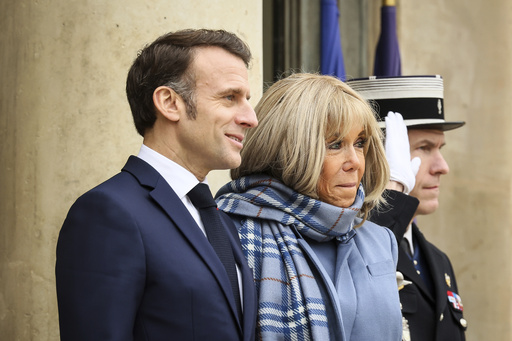PARIS — In a significant appearance on the global platform, Vice President JD Vance sent a clear message regarding the current U.S. administration’s stance: there is a place for all who align with President Donald Trump’s vision, yet there is also a readiness to move on from those who do not.
On Tuesday, at the Artificial Intelligence Action Summit in Paris, Vance closely aligned himself with Trump’s “America First” philosophy, emphasizing the need for the U.S. to retain its leadership position in the rapidly evolving AI landscape.
He urged European countries to reconsider their stringent regulations, which he claimed could stifle a transformative industry just as it begins to gain momentum.
“While we are leaders, we don’t intend to navigate this path alone,” Vance remarked. “However, establishing trust requires us to implement international regulatory frameworks that promote the growth of AI technology rather than restrict it. It’s crucial for our European allies to approach this promising frontier with positivity instead of apprehension.”
Although Vance’s comments were primarily focused on AI, the tone and substance resonated with the broader outlook of the Trump administration, which has adopted a forceful approach to governance and interactions with adversaries.
Trump’s administration has already reduced foreign aid significantly through the U.S. Agency for International Development. He remains committed to his plans for Gaza, envisioning that the U.S. will transform it into a “Riviera of the Middle East,” a notion that has faced widespread criticism from Palestinians and many in the Arab world. Furthermore, he has hinted at reclaiming the Panama Canal and expanding the U.S. by incorporating Canada as the 51st state.
Vance’s remarks stood in stark contrast to the overall focus of the summit, where the discussions mainly revolved around safeguarding democratic values against disinformation, alongside promoting AI technology for societal benefit.
Emphasizing the U.S. commitment to leading in AI, he stated, “The United States of America is at the forefront of AI technology, and our administration is determined to maintain that leadership. The achievement in AI will not be determined by a focus purely on safety but by our ability to innovate.”
In the early part of his speech, Vance criticized the Biden administration for being excessively cautious, referencing a speech by former Vice President Kamala Harris at a prior summit.
“I’m not here this morning to discuss AI safety, which was the headline of a conference two years ago,” he stated. “I’m here to discuss the opportunities that AI presents.”
Vance’s trip to Paris, which will extend to Munich for further summits, provides him a notable opportunity to engage with global leaders and key figures in the tech industry.
However, before his departure, Trump subtly remarked on Vance’s capabilities, indicating he was not yet ready to endorse him as a successor for the 2028 presidential election.
“There are many capable individuals available,” Trump stated. “So far, he’s performing exceptionally well. It’s still early to make predictions.”
The Paris summit, organized by France and India, was aimed at fostering discussions on developing standards for a sustainable AI that benefits collective advancements.
Vance communicated to emerging innovators in AI that the U.S. is open for collaboration while expressing skepticism towards some foreign governments that may restrict American tech entities operating abroad.
“This administration will support the startups and graduate students pioneering innovative AI applications,” he assured. “Our regulations will ensure fairness for both major and smaller tech companies in the industry.”
During his stay in Paris, new tensions arose between Trump and world leaders, especially after Trump announced a 25% tariff on foreign aluminum and steel right before Vance’s trip commenced.
This decision drew backlash from U.S. allies, with European Commission President Ursula von der Leyen declaring that these tariffs “will not go unanswered.”
Shortly thereafter, Von der Leyen and Vance met at the U.S. embassy but did not specifically address the tariffs in their public statements.
“We aim to ensure our security partnership benefits both Europe and the United States,” Vance emphasized, as Trump has been advocating for NATO members to significantly increase their domestic defense spending.
Von der Leyen acknowledged Vance’s call for optimism in his speech, suggesting it should equally apply to transatlantic relationships: “We should view our partnership with optimism.”
Following the summit discussions, Vance and his wife, Usha, were invited to lunch with French President Emmanuel Macron and his wife, Brigitte, at the Elysee Palace.
In a statement on the summit’s opening day, Macron poked fun at Trump’s energy policies, highlighting France’s initiative to reduce dependence on fossil fuels.
“In this world, where I have a good friend on the other side of the ocean advocating for increased oil drilling, here, we have a different approach – it’s about transitioning toward sustainability,” Macron remarked.
Vance’s next stop is Munich, where he will meet with Ukrainian President Volodymyr Zelenskyy to discuss the ongoing conflict with Russia, visit the historical site of the former Dachau concentration camp, and deliver a well-anticipated speech at the Munich Security Conference.




